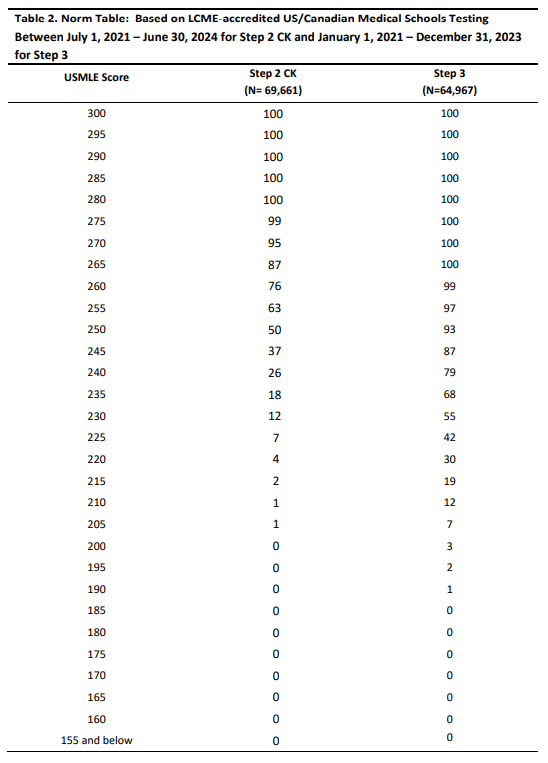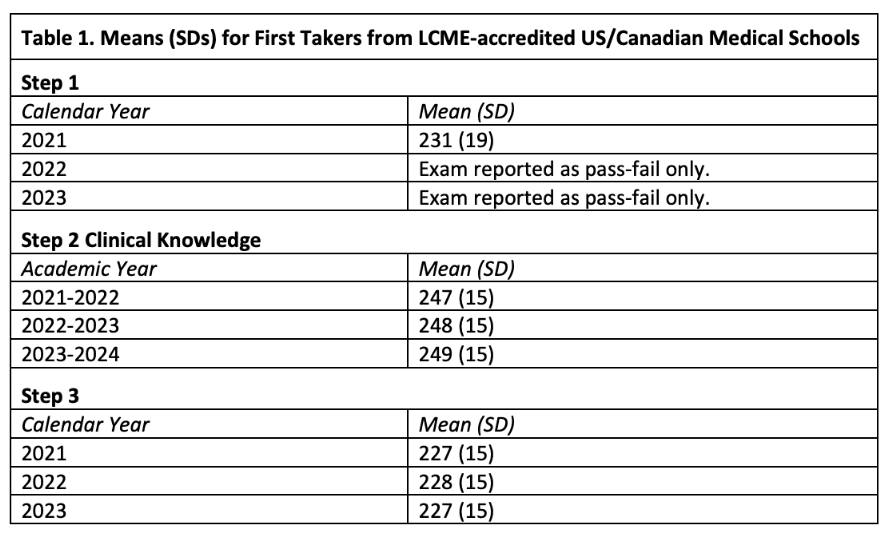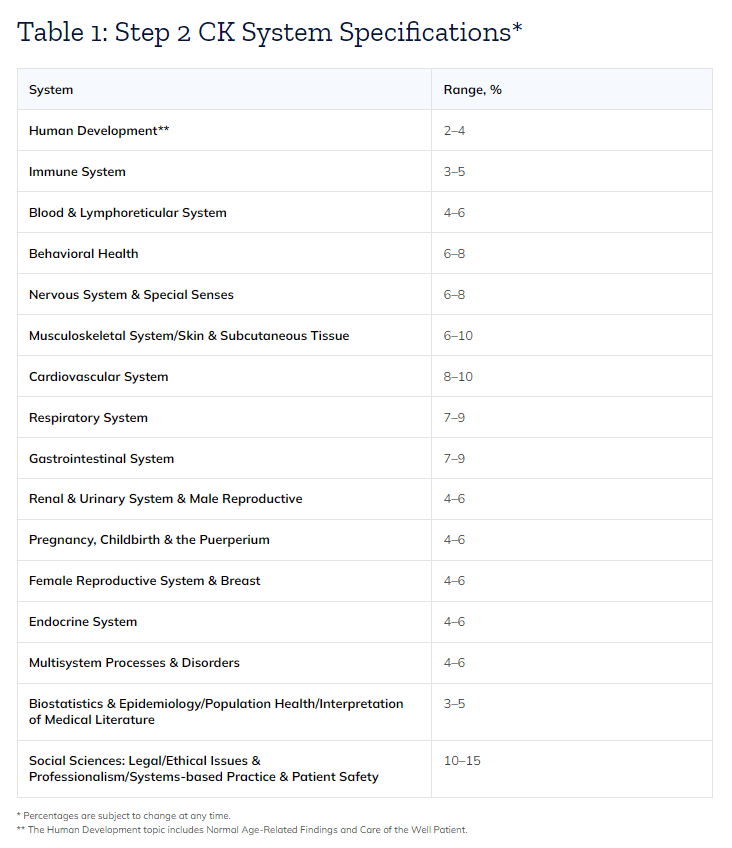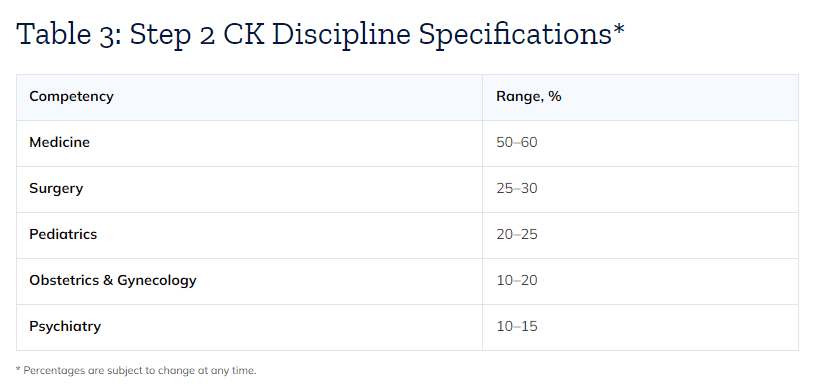How is Step 2 Scored and What You Need to Know

33108 Views
This blog was originally published on June 22, 2023, and updated in October 2024 by Dr. Dylan Eigar.
I’ve tutored many students who study for USMLE Step 2 CK somewhat passively. Some think, “if I study X resource, keep up with my Anki cards, and finish UWorld, I will crush Step 1/2/3.” While the above method is a great way to pass your USMLE exams, it doesn’t guarantee that you will do well. And doing well is the point, isn’t it? Scoring high on these exams will open doors for applicants. Scoring high on an exam means understanding what’s being tested and how you’ll be scored. In this post, we will focus specifically on how the USMLE Step 2 CK is scored.
Let’s break down the USMLE Step 2 CK scoring into basic rules. In this blog, we’ll compare it to other USMLE exams and understand the content.
USMLE Step 2 CK Scoring Basics
The reported scores for Step 2 CK and Step 3 range from 1 to 300. The standard error of measurement (SEm) is approximately 5 points. The current passing score for USMLE Step 2 CK is 218.
According to the USMLE, Step 2 CK evaluates the ability to apply medical knowledge and clinical science for patient care. In simpler terms, it tests students on clinical knowledge and disease management across specialties.
Comparing the USMLE Exams
First, let’s compare the average scores for Step 1, 2, and 3 for first time test-takers from US/Canadian medical schools (while keeping in mind that Step 1 recently transitioned to pass/fail).
Second, let’s compare the scoring guidelines for Step 2 and 3 for first-time test-takers from US/Canadian medical schools.

Note that at high scores, the percentile remains stable. USMLE Step 2 CK is graded on a distribution, meaning that your score is relative to other test-takers. Questions carry more weight for those in the 99th percentile than the 50th. Missing questions is acceptable for passing, but every question matters for acing the exam.
USMLE Step 2 CK Content
The content is the backbone of your USMLE Step 2 CK score. A student’s USMLE Step 2 CK score should directly correlate to clinical knowledge in a wide variety of specialties… right? While this is mostly true, you should read the exam content outline to figure out how to allocate your studies. No concept is guaranteed on the test, but it follows a predictable distribution of systems and disciplines. Students who have a thorough understanding of the content outline and exam blueprint typically do well on the USMLE Step 2 CK. The charts below highlight the breakdown of the exam content.
Notice how Medicine is more represented on USMLE Step 2 CK compared to the other disciplines! Not all disciplines are represented equally on the exam. For example, test-takers can expect 50-60% of test questions to ask about medicine-related topics (e.g., diabetes management). Of two students, one with perfect knowledge of Medicine-related topics and one with perfect knowledge of Psychiatry-related topics, the former will (theoretically) score higher on USMLE Step 2 CK.
A note on experimental questions
Experimental questions are questions included in your exam which may or may not be used on future tests with a future test pool of applicants. These questions do not count against your score. In order to verify the validity of a question, the test writers must test the discriminatory power of each question. For example, a question having good discriminatory power will result in people scoring higher getting the questions correct and those scoring lower getting them wrong. However, there is no way to know which questions are experimental and which questions count toward your score. Treat every question on your exam as if it counts toward your score!
In Summary…
That’s it!
Step 2 CK score reflects your clinical knowledge application compared to peers taking similar exams. You cannot say, “I got a 265, therefore I got 90% of the questions correct.” Scores are graded on a normal distribution (though imperfectly), not linearly. Study strategically, be thorough, and, if necessary, get a USMLE Step 2 CK tutor, and you will set yourself up for success.
See the USMLE Score Interpretation Guidelines for a complete explanation of USMLE Step 2 CK scoring.
Take a look at Elite Medical Prep’s Ultimate USMLE Step 2 CK Study Plan to help you get started and stay on track. Fill out the form below to receive the 4-week plan via email.
Review USMLE’s Charting Outcomes in the Match or a comprehensive description of the characteristics and USMLE exam scores of residents who matched into their specialty of choice.
Lastly, see the Step 2 CK Content Outline and Specifications for more information on how the test-makers decide what to test on the USMLE Step 2 CK.
If you are looking for some extra help preparing for Step 2, consider enlisting the help of a Step 2 tutor! Schedule your complimentary consultation today to learn more about how Elite Medical Prep can help you succeed.
Featured Articles






